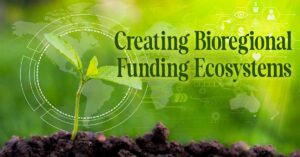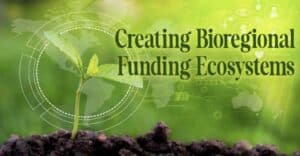The team discussed various technical issues, personal plans, and the concept of federated assets in apps, focusing on cross-platform integration and the potential of new technologies to disrupt power structures. They also explored the creation of a computational environment for groups to evolve, the development of a new software, Holo chain, and the challenges of building a strong online community. Lastly, they discussed the potential uses of a new tool, the interoperability with social instances, and the challenges of transitioning users to a new software.
Next steps
- Brad will explore integrating the AI summary feature into the Cascadia Fed Test group.
- Mike will create a pilot project within the Regenerate Cascadia group to demonstrate the potential of integrations and the weave fabric.
- Eric will provide more details on the evolution of the weave and how it can be customized for different use cases. Eric will continue improving the synchronization and stability of the weave tester. Eric will explore adding a phone app to the weave tester.
Summary
Federated Assets, Cross-Platform Integration, and Social Spaces
Eric discussed the concept of federated assets in apps and its implications for cross-platform integration using the AOL and Time Warner examples. The team also discussed the functionality of the ‘pocket’ feature, potential issues with the federation process, and creating a customized dashboard for the Design School within Regenerate Cascadia. The discussion touched on the challenges of managing multiple platforms, the potential of integrations to overcome this issue, and the development of a new tool that combines different components using open source philosophy. Lastly, Eric demonstrated the weave MOS technology and proposed a new method for creating social spaces using the Cascadia meeting notes as an example.
New Technology for Social Evolution and Agreement Spaces
The team discussed a new technology aimed at facilitating social evolution and agreement spaces, potentially creating a ‘new type of internet’ and disrupting power structures by enabling peer-to-peer interactions without intermediaries. They explored the challenges and possibilities of data management and collaboration tools, emphasizing the need for a new approach that returns control to users while maintaining efficient communication. The team also discussed the limitations of current social context creation systems and introduced the concept of federation as a solution to decentralize social context management. Finally, they established a new group named ‘Cascadia’ to further explore this technology, with Eric leading the creation of a Cascadia fed test.
Creating a Computational Environment for Group Evolution
Eric, Aaron, Steven, Mike, and Brad discussed creating a computational environment for groups to emerge and evolve naturally. They explored the idea of two squash clubs sharing resources like a calendar and meeting notes as a starting point. They also discussed integrating their current systems into a larger system and the potential of a new technology allowing for embedding and database repurposing. The team further explored the functionality and potential of their new software, Holo chain, which facilitates direct data transmission between computers and could potentially be funded through cryptocurrency. They also discussed the creation of a “Holo” currency and the possibility of bridging between the Holo chain world and the current worldwide web.
Group Platform Tutorial and Integration
Eric led a tutorial on how to join a group and install new applications on the group platform, demonstrating various tools such as brainstorming, drawing, video chat, and collaborative editing apps. He further explained the integration feature of new apps like AirTable and Notebooks, and how to create and join games within the platform. The team encountered some technical issues with app synchronization, with plans for future improvements.
Hola Chain Challenges and Internet Evolution
Eric experienced technical difficulties with Hola Chain, but remained optimistic about its future stability, mentioning an upcoming release candidate. He described Hola Chain as a platform that allows users to create custom applications and share data among participating machines. Eric also discussed the history and evolution of the internet, from its creation with the Internet Protocol to its current state, and highlighted the ongoing challenges to make mobile applications feasible. Paul then sought clarification on the concepts of ‘needs wants matching’ and ‘serverless computing’ in relation to social apps, acknowledging their complexity and practical implementation.
Building Strong Online Communities and Challenges
Eric discussed the challenges and potential solutions for building a strong online community. He emphasized the importance of creating a social context that fosters collaboration and showcases the value added by the community’s work. He suggested that the system’s architecture matters and that a decentralized, collaborative approach could help avoid the pitfalls of previous projects. Eric also highlighted the need to address social issues like trust and visibility within the group. Paul showed interest in the topic and asked questions about the technical aspects, such as using IP addresses.
New Tool Presentation and Concerns
Eric presented a new tool and its potential uses. Paul raised questions about its interoperability with social instances, the stability of the developer environment, and the potential for third-party app creation. There was also a discussion about the challenges of transitioning users from a telegram channel to a new software. Paul expressed concern about the installation cost being a barrier for many potential users. The conversation ended with Paul comparing the new tool to BBS systems from the past.
theweave.social/moss






